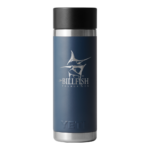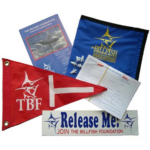The National Marine Fisheries Service’s (NMFS) proposed Amendment 15 has been withdrawn from final review at the Office of Information and Regulatory Affairs (OIRA), where it was listed under the title “Data Collection and Spatial Area Management.” A government spokesperson confirmed the amendment will remain on hold until the new administration is fully in place. Had it moved forward, Amendment 15 would have reopened waters off Florida and South Carolina to pelagic longline fishing—areas that have been protected for over 22 years.
This decision provides the incoming administration with an opportunity to impose a moratorium on Amendment 15 and initiate independent scientific and legal reviews.
Scientific and Legal Concerns
Amendment 15 relies on PRISM, a predictive model for spatial management, created by a government contractor (ECS) where it was developed by a post-graduate doctoral student, instead of traditional catch data. Rather than assigning NMFS fisheries scientists to the project, its development was outsourced.
An external review by NOAA’s Center for Independent Experts (CIE) identified concerns with the amendment but was explicitly instructed not to assess PRISM’s methodology—despite its central role in the amendment’s scientific framework. Further complicating matters, a PRISM study was published in Marine Biology Journal without disclosing that one author was both a NOAA employee and an Associate Editor of the journal, raising conflict-of-interest concerns.
Legally, the amendment’s complexity hindered public participation, violating a fundamental agency responsibility. A legal review may determine whether this lack of transparency renders Amendment 15 arbitrary and capricious.
Impact on Recreational Fishing and Billfish Conservation
Beyond its scientific and procedural flaws, Amendment 15 disproportionately impacts blue marlin and threatens recreational fishing interests. Key concerns include:
- Grouping Billfish Together – PRISM categorizes all billfish as one group rather than assessing blue marlin separately, favoring sailfish when determining restricted areas for pelagic longline fishing.
- Reduced Protected Areas – Despite the larger habitat needs of blue marlin and juvenile swordfish, protected waters are significantly reduced.
- Increased Longline Fishing Effort – The amendment authorizes a sharp increase in pelagic longline sets, heightening the risk of blue marlin bycatch.

Florida’s East Coast: Authorized longline sets increased to 250 (from 124 proposed), with a 41% reduction in protected waters. (Jan 1 – Dec)

Charleston Bump: Authorized longline sets increased to 380 (from 69 proposed), with a 68% reduction in protected waters. (Feb 1 – April 30)
Call to Action
The withdrawal of Amendment 15 is a significant victory, but continued advocacy is essential. Contact your senators and urge them to raise concerns with the Secretary of Commerce and OIRA. Protecting recreational fishing access and ensuring this amendment is permanently set aside remains critical.






